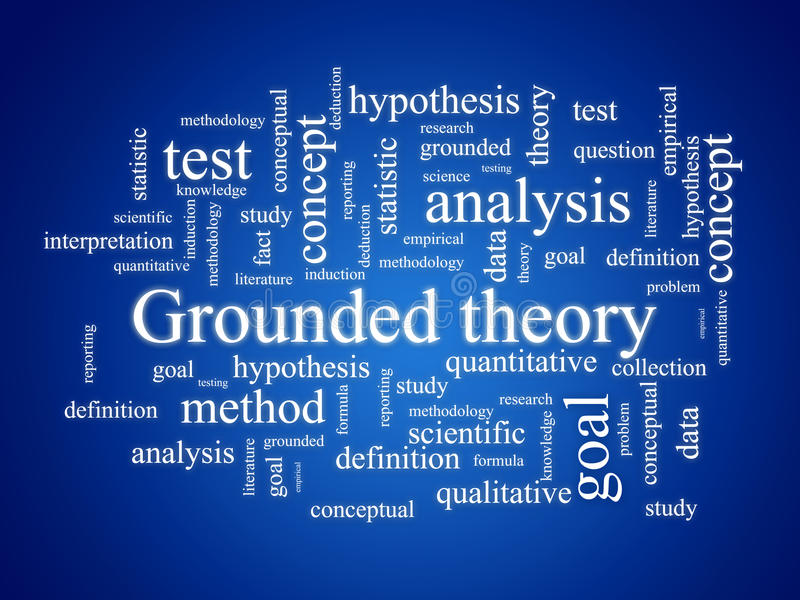Constructivist Grounded Theory

Constructivist grounded theory is Charmaz’s (2014) take on a methodology developed by Glaser and Strauss (1967) and characterised particularly by its inductive approach to research (with an ongoing process of simultaneous data collection and analysis), aimed at developing a theory, or explanation, ‘grounded in’, and emerging from, the data, rather than pre-existing categories and theoretical frameworks. Charmaz (2014) summarised the logic of grounded theory as follows:
Stated simply, grounded theory methods consist of systematic, yet flexible, guidelines for collecting and analysing qualitative data to construct theories from the data themselves (…) Grounded theory begins with inductive data, invokes iterative strategies of going back and forth between data and analysis, uses comparative methods and keeps you interacting and involved with your data and emerging analysis.
Charmaz (2014:1)
Grounded theory was developed as a response to the research methodologies of the early 20th century. These predominantly deductive methodologies were mainly oriented towards testing pre-formulated hypotheses. The research would normally start with a ‘general’ concept or theory and progress towards studying specific instances, or cases, in order to investigate its validity. In contrast to these approaches, and despite certain differences between various versions of the methodology stemming from differing epistemological views, grounded theory, in general, is an inductive approach aimed at developing a theory, or an explanation, through a thorough investigation of a range of individual cases through a process known as constant comparison (Glaser and Strauss, 1967).
However, despite some understandable similarities between the various versions of grounded theory, they are distinguished by contrasting epistemological views, which results in significant differences in how the studied reality is perceived and approached (Oliver, 2012). Thus, as the early 20th century grounded theory was deeply rooted in positivism, it subscribed to the idea of objective reality, which may be assessed by a neutral observer who would approach it without pre-existing knowledge of the topic and through rigorous and systematic application of a set of procedures. This, in turn, resulted in grounded theory being a strict and narrow set of specific scientific guidelines for conducting rigorous research. This strictly inductive approach was aimed at developing a theory based on a systematic enquiry into various individuals. More recently, however, constructivist grounded theory is being based on the assumption that “knowledge rests on social constructions” (Charmaz, 2009: 130) and, thus, the studied reality is not an objective, but a social construct, and the very notion of a neutral observer is inherently invalid. As Charmaz (2014) argued:
Unlike [Glaser and Strauss’] position, I assume that neither data nor theories are discovered either as given in the data or the analysis. Rather, we are part of the world we study, the data we collect and the analyses we produce.
Charmaz (2014: 17)
The implications of this epistemological position for research practice are that, no matter how rigorous the procedures are, the studied reality cannot be assessed objectively, as the researchers and the research participants alike “construct research processes and products” (Charmaz, 2009, p. 130). This significant shift in the perception of the studied reality required a different approach to studying it. Constructivist grounded theory is much less ‘prescribed’ in its design and places more importance on “diverse local worlds [and] multiple realities” (Creswell, 2013: 65), by putting the emphasis on the participants’ views, assumptions and beliefs and by emphasising the subjectivity of the researchers’ interpretations. At the same time, however, the existence of social structures independent of interpretation is not denied. The strictly inductive approaches to research promoted by the earlier versions of grounded theory do not provide an opportunity to effectively investigate this complex reality. Hence, constructivist grounded theorists advocate investigating the research topic either through “reverberating induction fostering deduction” (Glaser, 1998: 43) or through abduction, or
A type of reasoning that begins with the researcher examining inductive data and observing a surprising or puzzling finding that cannot be explained with conventional theoretical accounts. After scrutinizing these data, the researcher entertains all possible theoretical explanations for the observed data, and then forms hypotheses and tests them to confirm or disconfirm each explanation until he or she arrives at the most plausible theoretical interpretation of the observed data.
Charmaz (2014: 341)
Research based on abductive reasoning begins with induction, but does not end with it. Rather, the inductive stage leads to formulating hypotheses that may be based on both the researcher’s pre-existing theoretical knowledge and the emerging research findings and testing them through empirical investigation. Abduction also involves pursuing personal hunches, making highly theoretical interpretations and making assumptions about any unspoken knowledge (Oliver, 2012).
References:
Charmaz, K. (2009). Shifting the grounds: Constructivist grounded theory methods. In J. M. Morse, P. N. Stern, J. M. Corbin, B. Bowers & A. E. Clarke (eds.) Developing Grounded Theory: The Second Generation.Walnut Creek, CA: University of Arizona
Press.
Charmaz, K. (2014). Constructing Grounded Theory. London: SAGE.
Glaser, B. (1998). Doing Grounded Theory: Issues and Discussions. Mill Valley, CA: Sociology Press.
Oliver, C. (2012). Critical Realist Grounded Theory: A New Approach for Social Work Research. British Journal of Social Work, 42, 371-387.
